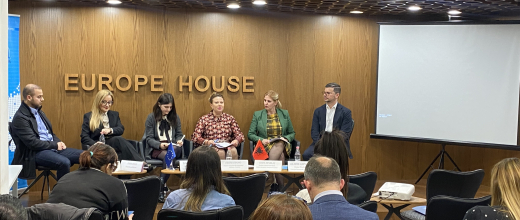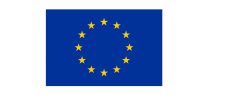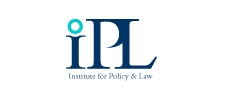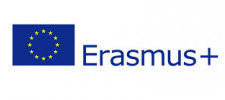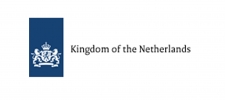On December 21, 2023, the European Movement in Albania held a discussion forum at Europe House premises concerning the publication and presentation of a few policy papers and legal articles within the “Building Partnership on Fundamentals: Empowered CSOs for the EU Accession Process” project, with the financial support of the European Union – IPA Civil Society Facility 2021” project, with a focus in analyzing the reforms carried out in Albania within the framework of European integration, as well as drawing attention to the challenges encountered during the process of alignment of our legislation vis-à-vis the EU acquis. Participating organizations from civil society, academia, media, and governmental institutions deliberated and improved the recommendations made in light of the areas specific to Chapter 23 (Judiciary and Fundamental Rights) and Chapter 24 (Justice, Freedom, and Security).
Gledis Gjipali, in his introductory remarks, emphasized the necessity of approaching recent developments from a different angle in the context of the EU Accession process. The current policy papers developed in this forum are essential for highlighting the disparities in the political, legal, and strategic framework in important areas to get beyond the EU gatekeepers and, more importantly, for offering some predictably substantial recommendations on how to solve the pieces that are still missing from the puzzle. All interested parties participating in these forums, which record the experiences into tangible product, are key role players, as apart from getting informed, they can get actively involved in the EU Integration process areas.
Elona Bano, Director of Integration and Negotiations at the Ministry of Justice, presented her policy paper regarding the guarantee of penal protection of victims of crime, which includes financial and psychological protection as precautionary measures to prevent them from sustaining the same intimidating circumstances again. She confirmed that the new Strategy for Victims of Crime is adopted, and the Penal Code will undergo a review by 2024. It is necessary to emphasize on the role of victims of crime in addition to providing them with rehabilitation under the Penal Code. The European Parliament and the Council of European Union adopted Directive 2012/29/EU in 2012 to define standards and rights, as well as to help and protect victims of crime, in response to the growing number of victims of crime. Additionally, the Council of Europe states that the term “victim of crime” refers to more than simply the victims of major deliberate crimes of violence; it also covers the immediate family or dependents of the direct victim. In her concluding remarks, she outlined that certain issues pertaining to the definition of family members and restorative justice, the use of audiovisual technology for criminal offenses involving human trafficking and sexual abuse, the presence of an accompanying adult for adult victims of crime, access to legal consultation and complaint procedures, support for compensation schemes, prevention of secondary victimization, and direct contact between the accused and victim’s family members need to be transposed into Albanian legislation in order for it to be harmonized with the EU acquis.
Elda Zenelaj, Director of the Technical Secretariat of the National Council of European Integration, treated freedom of expression included in Chapter 23 of the EU acquis. She has developed a legal analysis in her policy paper that is entirely focused on the EU framework. Albania is between some and moderately prepared in terms of freedom of speech, according to the most recent report from the European Commission. She reiterated that media independence, plurality, and the standard of journalism were still being hampered by the high concentration of media ownership among very few owners, as well as intimidation and unstable working circumstances. She discussed several EU directives on media freedom of expression in her paper, such as Directive 2018/1808/EU on Audiovisual Mediatic Services, which includes provisions for better protecting minors, and Directive 2018/1972/EU of the European Parliament and the Council, which focuses on “the adoption of European Electronic Communications Code”. Article 19 of the International Pact for the Civil and Criminal Rights has been referenced in Albanian legislation, and the Civil Code, Criminal Code, Criminal Procedure Code, Electoral Code, and Administrative Procedure Code contain the legal provisions pertaining to freedom of expression and freedom of the media. She focused on the recommendations made in this area, which included amendment of the Personal Data Protection Law in accordance with EU Regulation 2016/679, full compliance with the provisions of Articles 119 and 120 of the Criminal Code on “Insult and Defamation” according to European standards, the alignment of the provisions of Article 617 of the Civil Code for the publication of misleading or incorrect information with European legislation, the performance of systematic monitoring and efficient, as well as ensuring transparent reporting of court cases in which journalists and other media professionals are parties; as well as improving working conditions in accordance with the Labor Code, protecting the social rights of journalists.
Romario Shehu, Researcher on Security Issues, treated the topic of effective organized crime prevention as one of the main requirements for joining the EU. He stressed that while the “hard approach” of fighting organized crime, sabotaging their operations, and shielding the public from damage continues to be a crucial part of governmental efforts to combat this issue, it is equally critical to focus on the “soft approach” by taking preventative measures. He also acknowledged that the European Crime Prevention Network was set up to help different levels of knowledge and best practices exchange. He highlighted that a competent security sector governance should adhere to the following criteria, according to the Geneva Centre for the Democratic Control of Armed Forces: accountability, transparency, rule of law, participation, responsiveness, effectiveness, and efficiency. He notes that much more has to be done to improve public confidence in Albania’s security establishments. Thus, less than half of Albanians have trusted the State Police over the last three years. The security industry frequently seeks to restrict access to information about its operations for the general public, but overly secrecy can backfire and encourage misconduct. In this regard, 253 police officers were referred to the prosecution in January 2023 by the Police Oversight Agency (POA), the official state organization in charge of monitoring police activity. In his closing remarks, he pointed out that in order to meet these issues, Albania needs to ensure that civil society is actively involved in developing and executing security measures by creating an environment that is more inclusive and supportive of it.
Evis Fico, Policy Expert, thoroughly treated the topic of informality within the context of the battle against corruption, money laundering, and the development of integrity. She outlined the steps the Albanian government has taken to combat corruption, including judicial reform, financial sector reform through the fiscal system and digitalization of control mechanisms, and public administration reform through increased employee integrity and transparency. She underlined that the primary drivers of informality are persistent changes to the law, the emergence of high interest norms, and nonformal competition. She emphasized that the establishment of specialized databases for bank accounts and beneficial owners in 2021 established a strong foundation for preventing ownership anonymity, supplying evidence for ownership, and providing the opportunity for verification at the relevant law enforcement agencies. On January 31, 2022, the Albanian government approved the Economic Reform Programme 2022–2024, which included consultation and the execution of an all-inclusive approach to address the components of informality. She came to the conclusion that creating a framework and adopting a strategy to combat informality are necessary. Also in her recommendations she emphasized the fight against money laundering, which is covered in every FATF report; the adoption of Integrity Plans in the fight against corruption in key areas like customs, health taxes, and education; the use of real-time supervision of financial transactions between taxpayers to combat tax evasion, tax fraud, and informality; and the adoption of the Register of Taxpayers’ Assets to determine the true worth of taxpayers’ assets as crucial steps to be undertaken in this field.
The participants demonstrated their interest by actively participating in discussions about the four policy papers that were provided, specifically on the topics of expanding victim protection as a fundamental human right, the rise in criminal and civil cases in Albania that involve journalists as parties, and the idea that the security sector theme extends beyond taking preventive measure by civil society actors that are looked into in secondary sources. Additionally, they expressed interest in the present status of Albania’s EU Accession process and the Greek veto as perceived by the panelists.

